Collagen is the most abundant and main structural protein of
the human body and makes up 25%-30% of the body’s protein in the form of
connective tissue, bones, skin, cartilage, and tendons [1] [2]. Collagen is
made up of amino acids like Glycine, Proline, Hydroxyproline, and Arginine [1].
There are 28 types of Collagen, but the most prominent types are I, II, and III
[3].
As we age, changes are seen in the mechanical properties of
tissues. For skin, bone, and certain other organs, these properties are
substantially determined by the connective tissue, and collagen being the most
copious protein in the connective tissue is subjected to age-related changes
such as degradation (breaking down as opposed to its synthesis [4].
Studies indicate that skin collagen content is reduced with
increasing age and the following menopause. This substantiates the appearance
of skin sagging and wrinkles associated with aging. As Collagen in connective
tissues contributes to bone strength lack of collagen increases fragility [4].
Collagen-building supplements with the right nutrient
composition will effectively aid the body’s natural collagen synthesis process.
Our Formulation
Unived’s Vegan Builder contains everything essential to
boost the collagen-generating pathway and to protect and maintain the Collagen
that is produced. It contains enough natural antioxidants to fight free radical
damage and to protect the cells and specific Amino Acids in required amounts to
aid synthesis.
Mode of Action:
Unived’s Vegan Collagen Builder exerts its action through:
A. Aiding Synthesis of Collagen: through, the synergistic
action of Amino Acids, Vitamin C, and Minerals like Sodium and Copper.
Amino acids (Gly-Orn-Lys) are necessary for the primary
initiation of Collagen Synthesis.
Vitamin C acts as a cofactor in the hydroxylation process
where Proline and Lysine are hydroxylated to form Hydroxyproline and
Hydroxylysine, the essential components of Collagen. Hydroxylation of proteins
imparts tensile strength by allowing fibers to cross-pink within the proteins
[5].
Sodium aids in Vitamin C uptake and Copper is required for
the enzyme responsible for the formation of cross-links in Collagen [11].
B. Protecting Collagen from Degradation: through,
Lutein: A potent natural antioxidant, inactivates
collagenase enzyme responsible for the degradation of Collagen and increases
the rate of Collagen synthesis. It also has photoprotective properties [6].
Hesperidin: has antioxidant, and anti-inflammatory activity.
It inhibits UV-induced inflammation and wrinkle formation. It also inhibits the
activity and expression of Collagen degrading enzymes and upregulates Collagen
synthesis. It is a natural antioxidant [7].
C. Maintenance & Hydration: through,
Hyaluronic Acid: prevents dehydration of the dermis. It
helps to repair fibroblast cells which produce Collagen [8]. Thus Hyaluronic
acid aids in Collagen synthesis and prevents degradation of the dermis layer
maintaining the integrity of the skin [9].
Organic Bamboo Extract: It is a source of the mineral
silica. It is important for optimal collagen synthesis and plays a structural
role in the cross-linking of glycosaminoglycans in connective tissue improving
skin strength and elasticity [10].
References:
1. Shoulders, Matthew D., and Ronald T. Raines.
"Collagen structure and stability." Annual review of biochemistry 78
(2009): 929.
2. https://examine.com/search/?q=collagen
3. Ricard-Blum, Sylvie. "The collagen family."
Cold Spring Harbor perspectives in biology 3.1 (2011): a004978.
4. Castelo-Branco, Camil, et al. "Relationship between
skin collagen and bone changes during aging." Maturitas 18.3 (1994):
199-206.
5. Ali, Fasil, et al. "Posttranslational Modifications
of Proteins and Their Role in Biological Processes and Associated
Diseases." Protein Modificomics. Academic Press, 2019. 1-35.
6. Shelly N H, Steve M W, Russell G, Dale K, Robert O’D, et
al. A Nutritional Supplement Blend of Collagen Peptides, Lutein and Wheat Lipid
Extract Improves Skin Attributes. JOJ Dermatol & Cosmet. 2021; 4(2):
555633. DOI: 10.19080/JOJDC.2021.04.555633
7. Lee HJ, Im AR, Kim SM, Kang HS, Lee JD, Chae S. The
flavonoid hesperidin exerts anti-photoaging effect by downregulating matrix
metalloproteinase (MMP)-9 expression via mitogen activated protein kinase
(MAPK)-dependent signaling pathways. BMC Complement Altern Med. 2018 Jan
30;18(1):39. doi: 10.1186/s12906-017-2058-8. PMID: 29382339; PMCID: PMC5791357.
8. Mast, Bruce A., et al. "Hyaluronic acid modulates
proliferation, collagen and protein synthesis of cultured fetal
fibroblasts." Matrix 13.6 (1993): 441-446.
9. Papakonstantinou, Eleni, Michael Roth, and George
Karakiulakis. "Hyaluronic acid: A key molecule in skin aging."
Dermato-endocrinology 4.3 (2012): 253-258.
10. Araújo, Lidiane Advincula de, Flavia Addor, and Patrícia
Maria Berardo Gonçalves Maia Campos. "Use of silicon for skin and hair
care: an approach of chemical forms available and efficacy." Anais
brasileiros de dermatologia 91 (2016): 0331-0335.
11. Harris ED, Rayton JK, Balthrop JE, DiSilvestro RA,
Garcia-de-Quevedo M. Copper and the synthesis of elastin and collagen. Ciba
Foundation Symposium. 1980 ;79:163-182. DOI: 10.1002/9780470720622.ch9. PMID:
6110524.






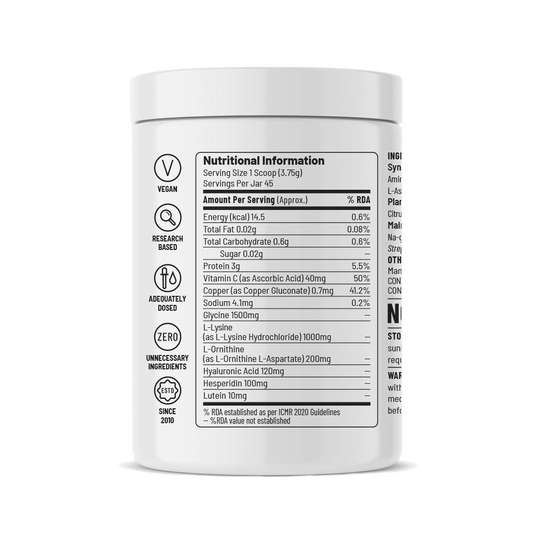 Sold outVendor:Bone Health
Sold outVendor:Bone Health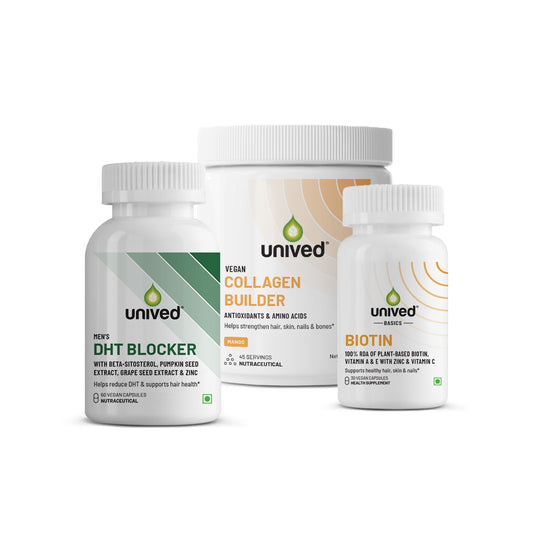
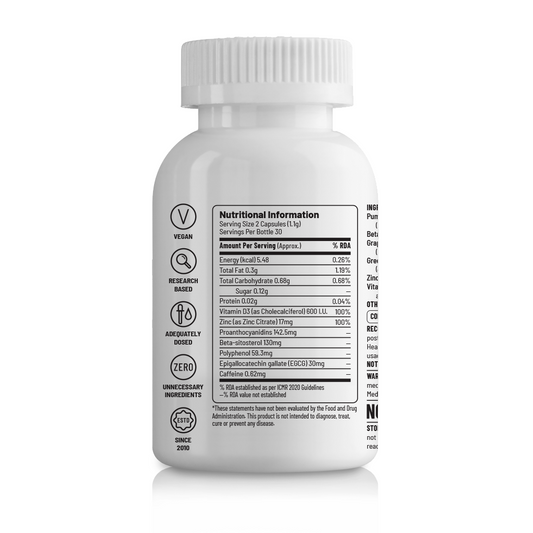 Sold outVendor:Hair Health
Sold outVendor:Hair Health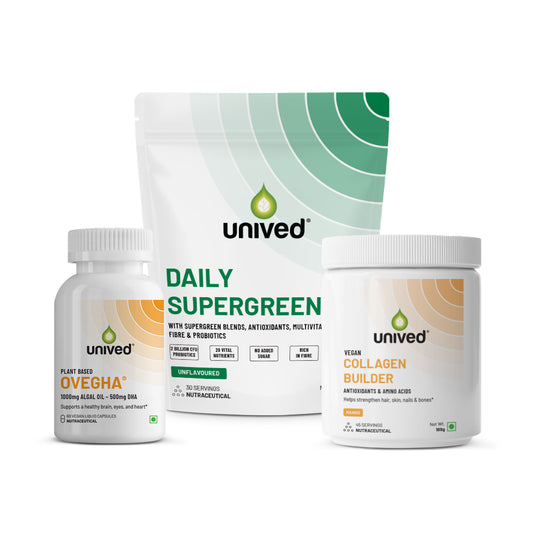
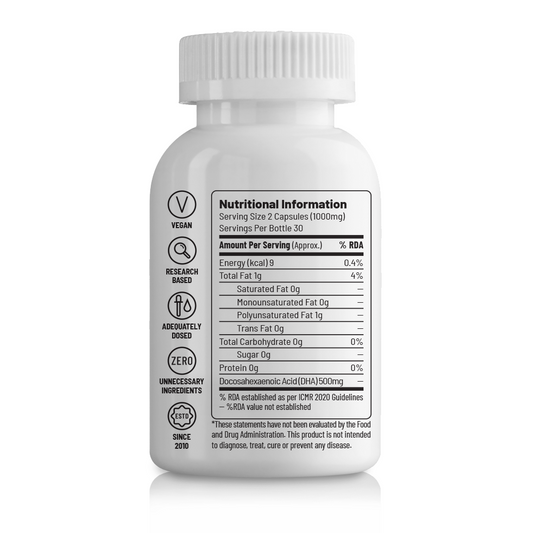 Sold outVendor:Skin Health
Sold outVendor:Skin Health













